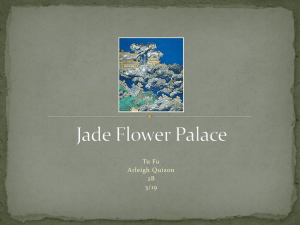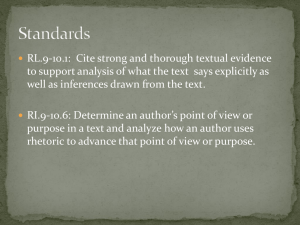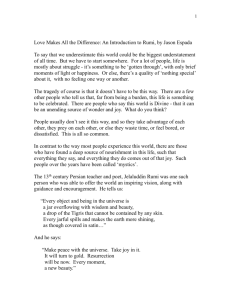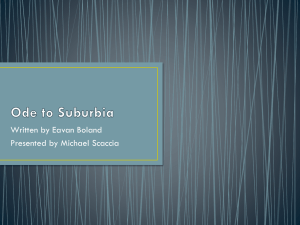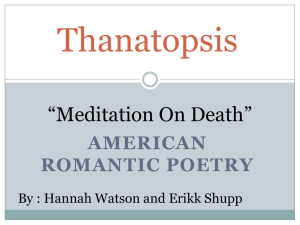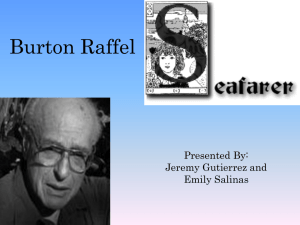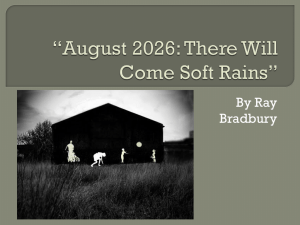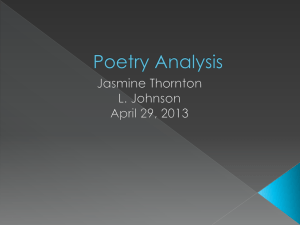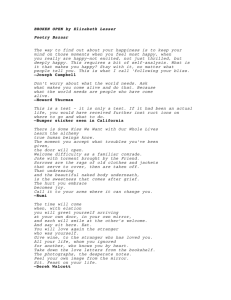The Rubaiyat
advertisement
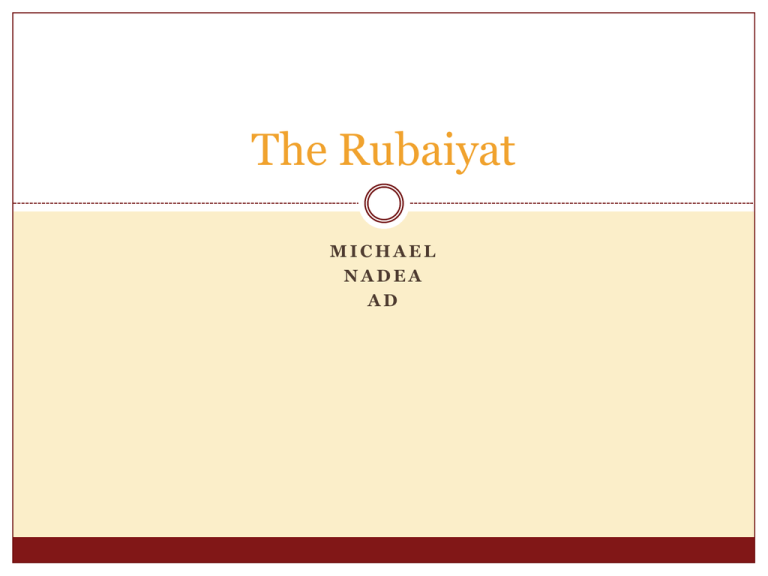
The Rubaiyat MICHAEL NADEA AD The Rubaiyat Time bringeth swift to end The rout men keep; Death's wolf is nigh to rend These silly sheep. See, how in pride they go With lifted head, Tell Fate with a sudden blow Smiteth them dead. ~ Thou who lovest, life a crow, Winter’s chill and winter’s snow, Ever exile from the vale’s Roses red, and nightingales: Take this moment to thy heart! When the moment shall depart, Long thou ‘It seek it as It flies With a hundred lamp s and eyes ~ The heavenly rider passed: The dust rose in the air; He sped; but the dusthe cast Yet hangeth there. Straight forward thy vision be, And gaze not left or right; His dust is here, and he In the Infinite. Literary Terms Connection Imagery, Jalal Al-Din Rumi examples imagery in his poem by stating … “Thou who lovest, life a crow, Winter’s chill and winter’s snow,” It puts a cold winter day and snowfall into your mind while your reading, also when he states life a crow, you imagine a crow soaring through the cold winter air. Literary Terms Connection Tone, Jala Al-Din Rumi shows a forceful tone. His tone throughout the poem changes because there are 3 different sections of the poem, during the poems his forceful tone stays throughout. “Take this moment to thy heart! When the moment shall depart,” Literary Terms Connection Third Person Narrative, Jalal Al-Din Rumi speaks throughout his poem in third person narrative, an example from the poem is, “He sped; but the dusthe cast Yet hangeth there.” Literary Terms Connection Hyperbole Jalal Al-Din Rumi shows a hyperbole by stating “Tell Fate with a sudden blow,” As in you cant tell fate anything because it isn't a living thing, there for Jalal exaggerated the fact of fate. Analysis The Rubaiyat is three separate poems in a huge poem, but connect in a way that shows death and what people should do and react to it.
